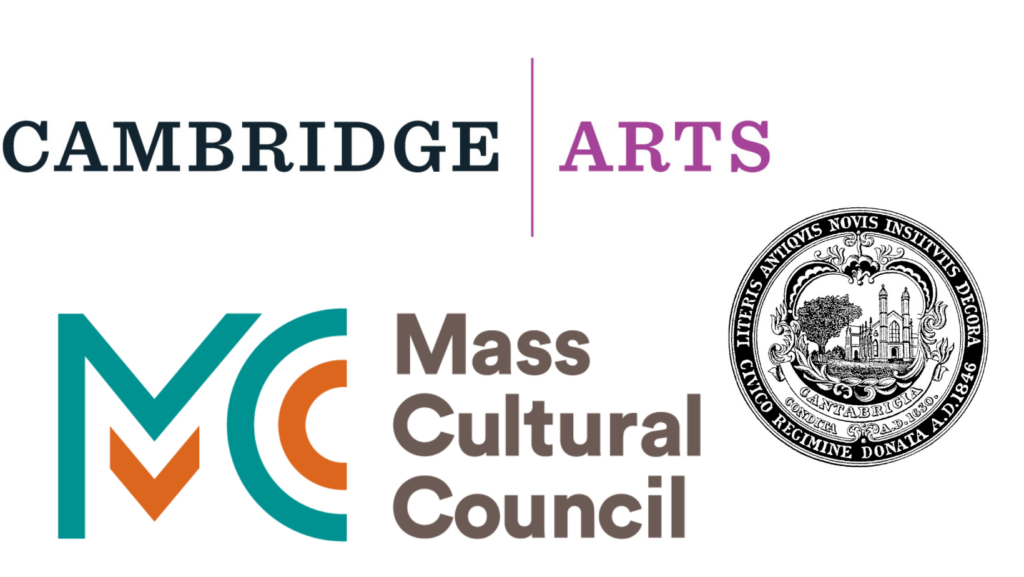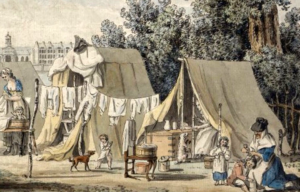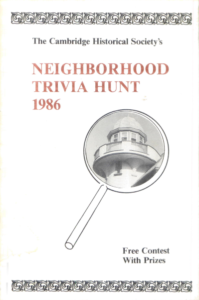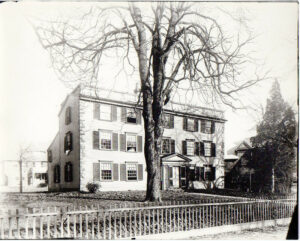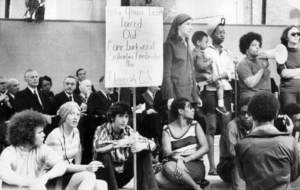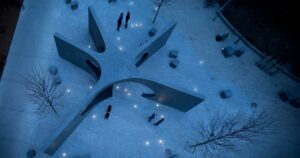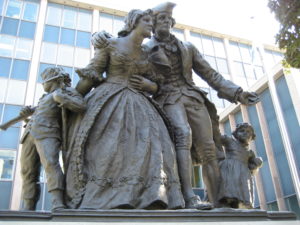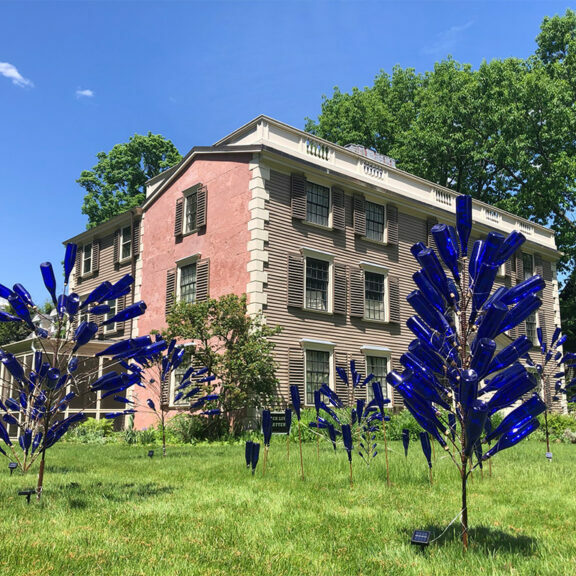
Forgotten Souls of Tory Row: Remembering the Enslaved People of Brattle Street
About the Project
In 2022, History Cambridge was awarded an Arts for Social Justice grant from Cambridge Arts. We selected the artist collaborative Black Coral, Inc. for the project and installation began in May 2022, with the art on view from June 1, 2022 through April 7, 2023. “Forgotten Souls of Tory Row: Remembering the Enslaved People of Brattle Street” honors the enslaved adults and children who lived and worked on this land as well as those whose labor on Caribbean plantations helped finance the grand homes of white Tory Row elites.
Slavery in Cambridge
The oldest existing mention of slavery in Massachusetts was recorded in 1638, when African prisoners arrived in the colony on the slave ship Desire, built in Marblehead the previous year. In 1639, the mention of a “Moor” living in the household of Nathaniel Eaton, master of Harvard College, marks the oldest surviving mention of slavery in Cambridge. Massachusetts was the first American colony to formally sanction human bondage under the Body of Liberties law, which was enacted in 1641. Slavery remained legal in Massachusetts until 1783. The colony served as a center of slave-trading in New England as early as 1645, when a Massachusetts-built slave ship sailed from Boston to Cape Verde, where merchants bought Africans to be sold into bondage either at their next port in Barbados or upon their return to the mainland British colonies.
Some Cambridge families, including those in West Cambridge and the residents of Brattle Street (Tory Row), made their wealth through enslaved labor in Jamaica and/or they enslaved people at their homes and estates. Joseph and Rebecca Lee, the owners of the circa 1685 Hooper-Lee-Nichols House, the headquarters of History Cambridge, were complicit in this economy.
About the Art
The installation by Black Coral is a collection of bottle trees. Originating in the Congo in West Africa and dating back to at least the ninth century, the bottle tree tradition was brought to the United States by enslaved people, most notably those who lived in Georgia and South Carolina. This tradition was passed down through generations of enslaved and, later, free Black communities, marking the survival of a cultural practice despite the bonds of slavery. The distinctive blue bottles were placed on tree limbs to capture the energy, spirit and memories of ancestors.
The installation by Black Coral is composed of two circles of “trees” made of iron – an exterior circle and a smaller interior circle. Blue glass bottles are placed on the end of the branches to form bottle trees. The trees are strung with with solar lights that illuminate at dusk. These trees represent the adults and children enslaved on what we now call Brattle Street by prominent Cantabrigians such as William Brattle, Lt. Gov. Thomas Oliver, the Lees and the Vassalls. Although we do not know all of the names or life experiences of the enslaved people, we aim to honor their humanity through this installation and restore their physical presence to the land where they once lived and worked.
Public Events
- July 16, 2022: History Cambridge and Black Coral remembered the “Forgotten Souls” with a celebration. Included in the celebration were a libation ceremony, readings by L’Merchie Frazier and a drum invocation by Cornell Coley.
- July 21, 2022: Executive Director Marieke Van Damme spoke with the artists of Black Coral about the project.
Did you view the art?
Let us know what you thought! Fill out our short survey.
Media Coverage
The Boston Globe, “‘The ugly can turn into beauty’: Bottle trees on Brattle Street hold memory of the enslaved” by Alexander Thompson
WCVB Channel 5, “Cambridge blue bottle art installation evokes untold history of slave trade” by Jennifer Eagan
WBZ NewsRadio, “West African Tradition Remembers Slavery Victims In Cambridge” by Jay Willett and James Rojas
Cambridge Day
- Bottle trees are sprouting up in new locations, continuing to honor the enslaved in Cambridge by Beth Folsom
- “History Cambridge plans a celebration Saturday for its ‘Forgotten Souls of Tory Row’ installation” by Beth Folsom
- “Cambridge’s Caribbean connection runs deep” by Marni Zea Clippinger
- “‘Forgotten Souls of Tory Row’ art installation remembers enslaved people of Brattle Street” by Beth Folsom
- Art installation ‘Forgotten Souls of Tory Row’ coming down, presence of enslaved remains by Beth Folsom
Photo Gallery
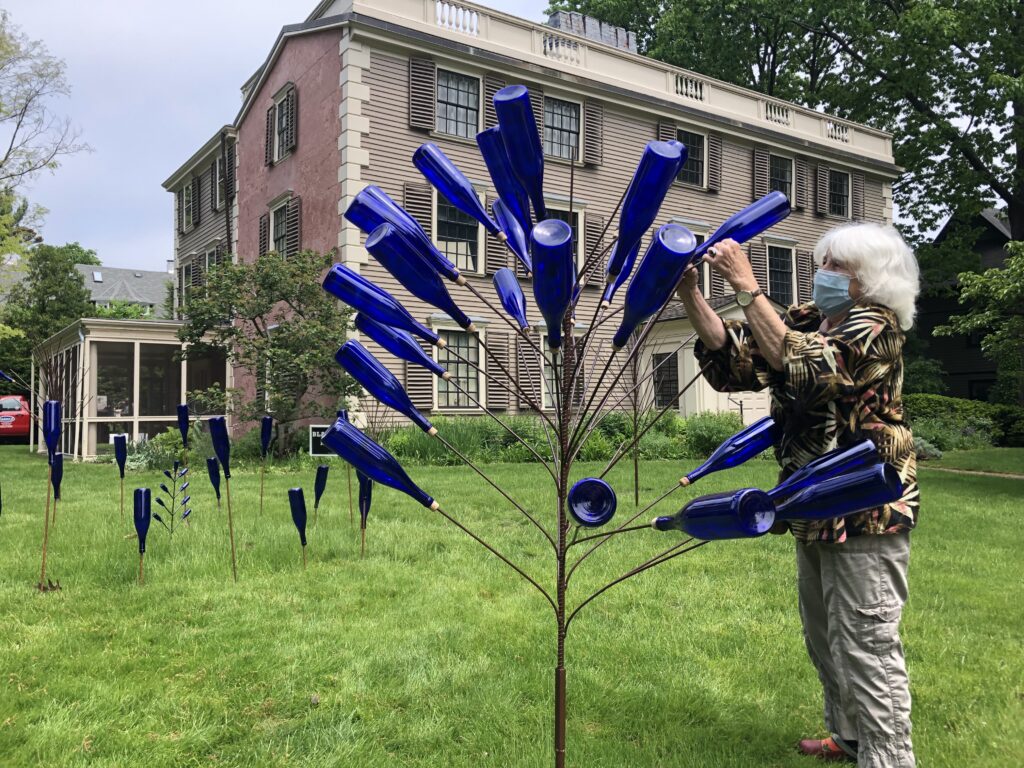
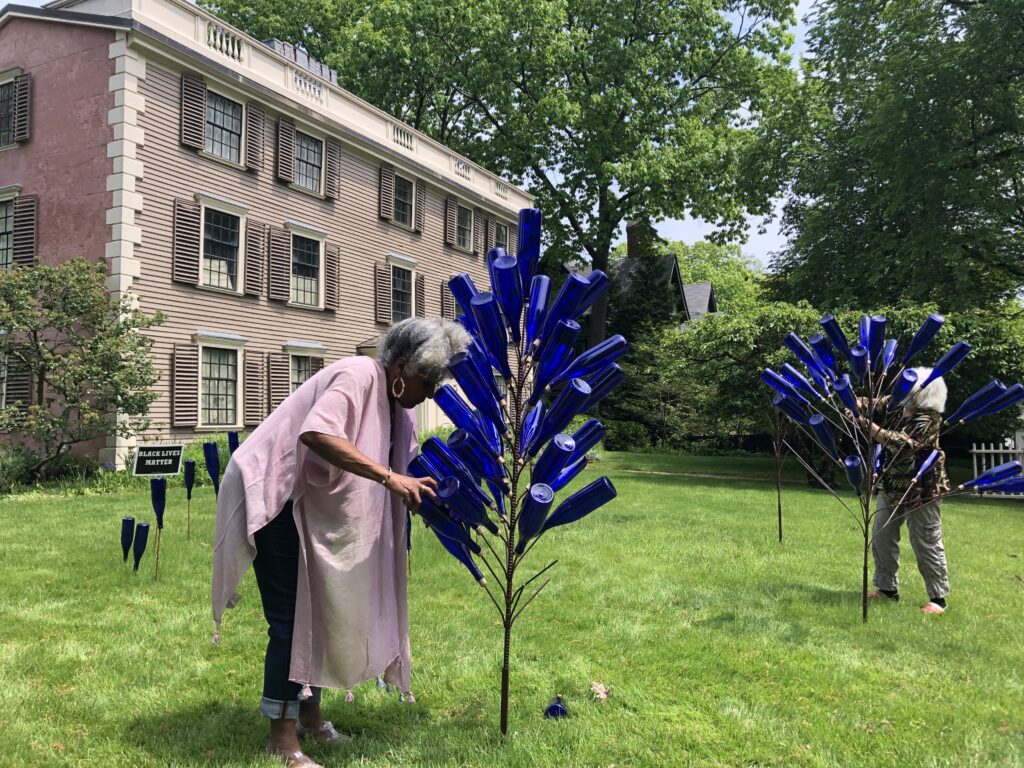
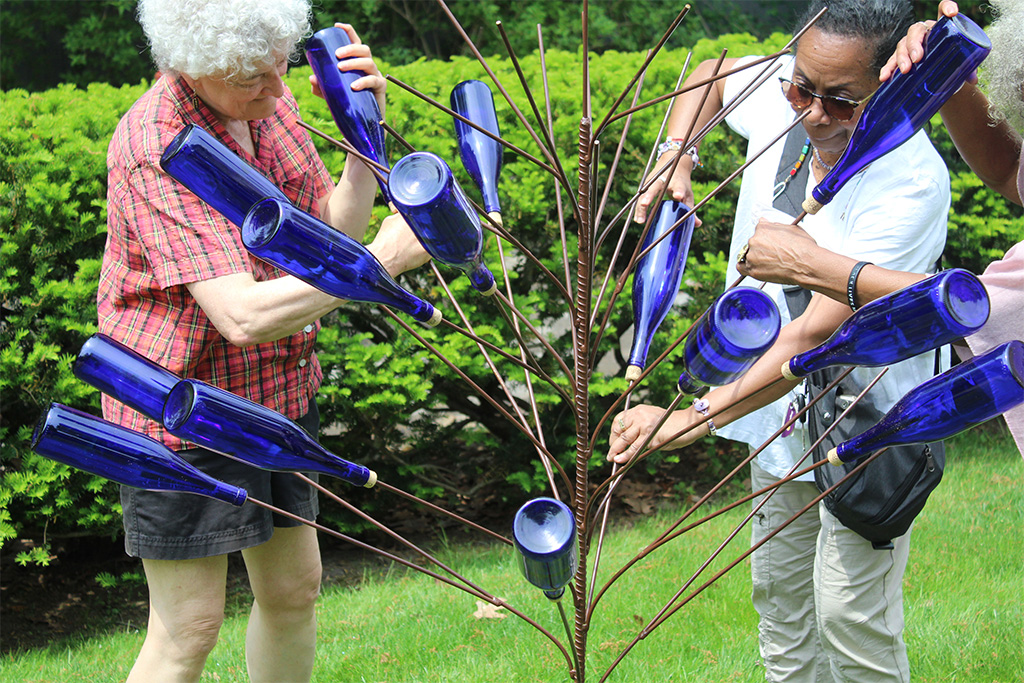
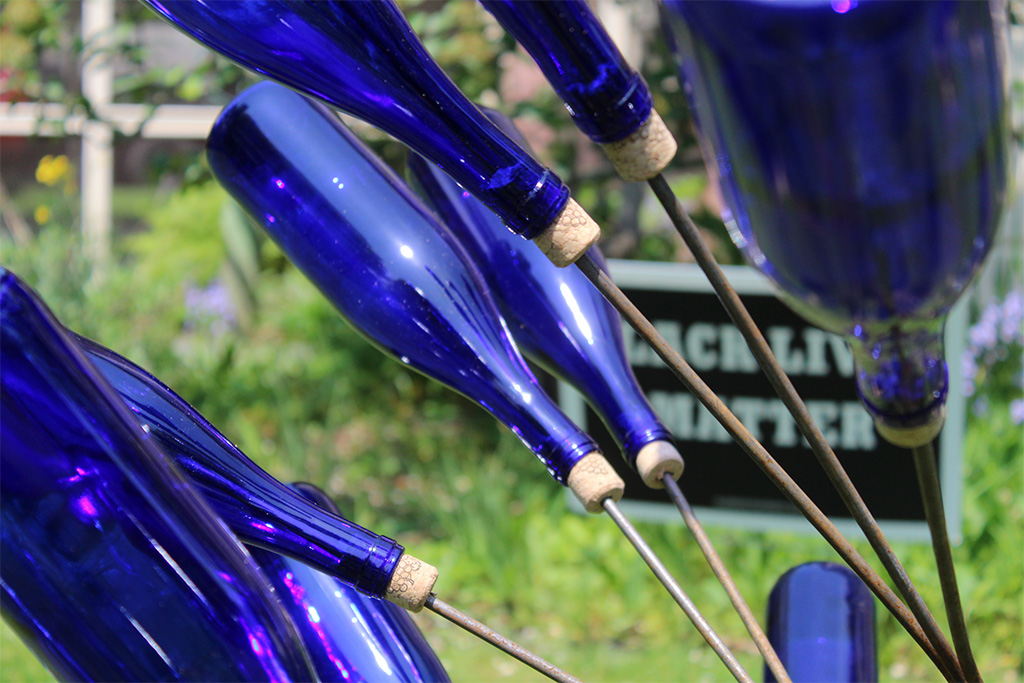
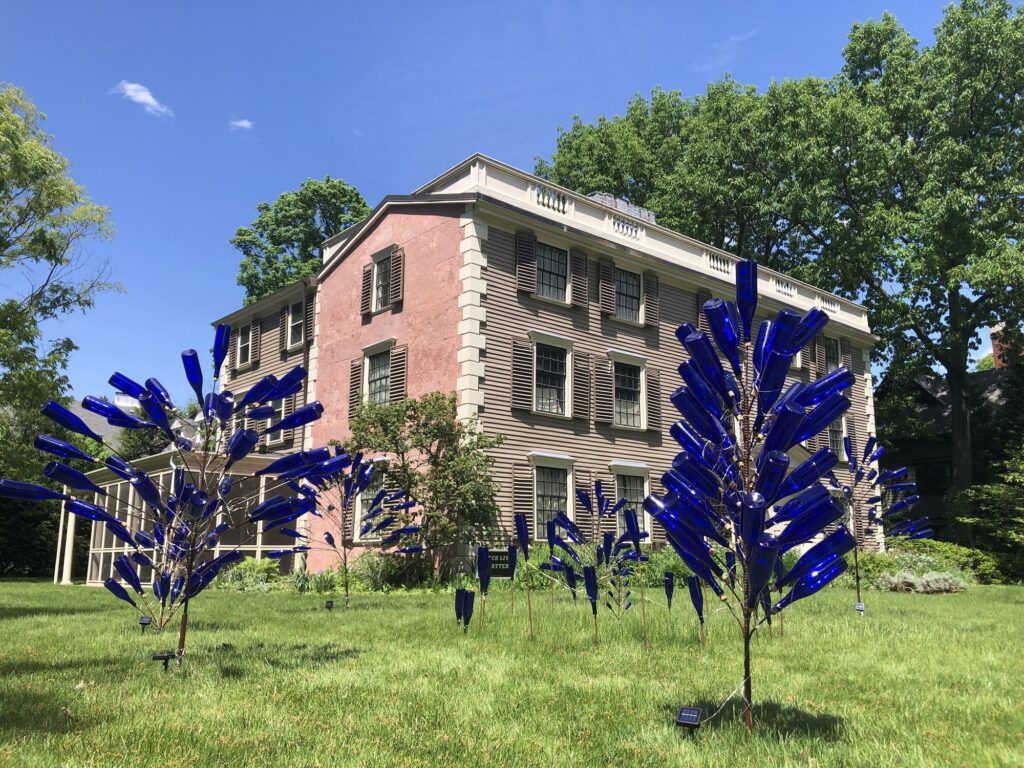
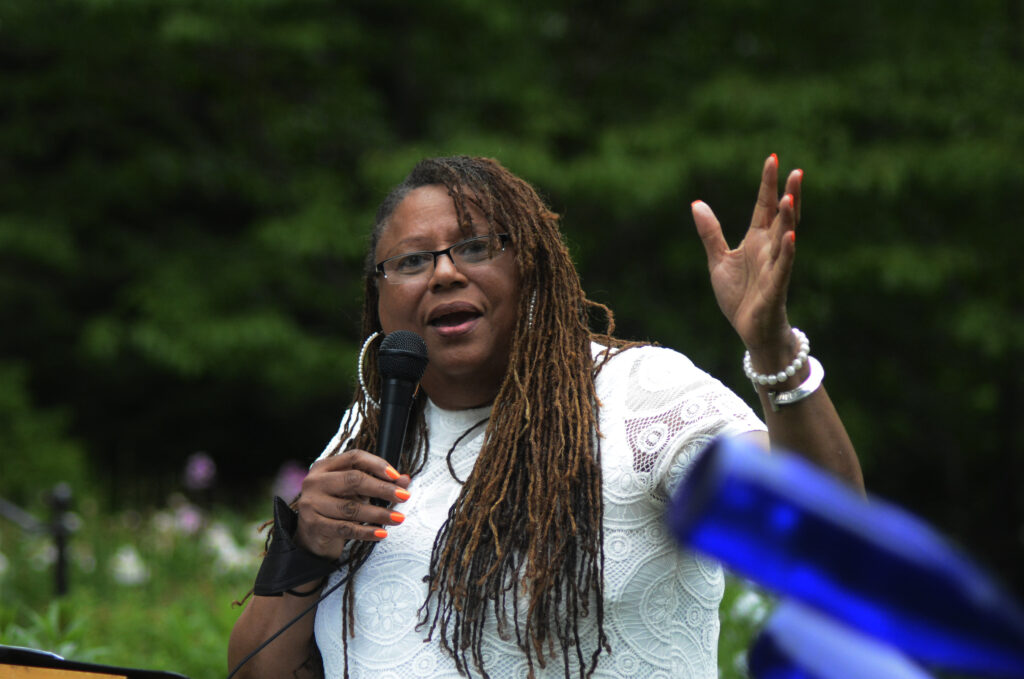
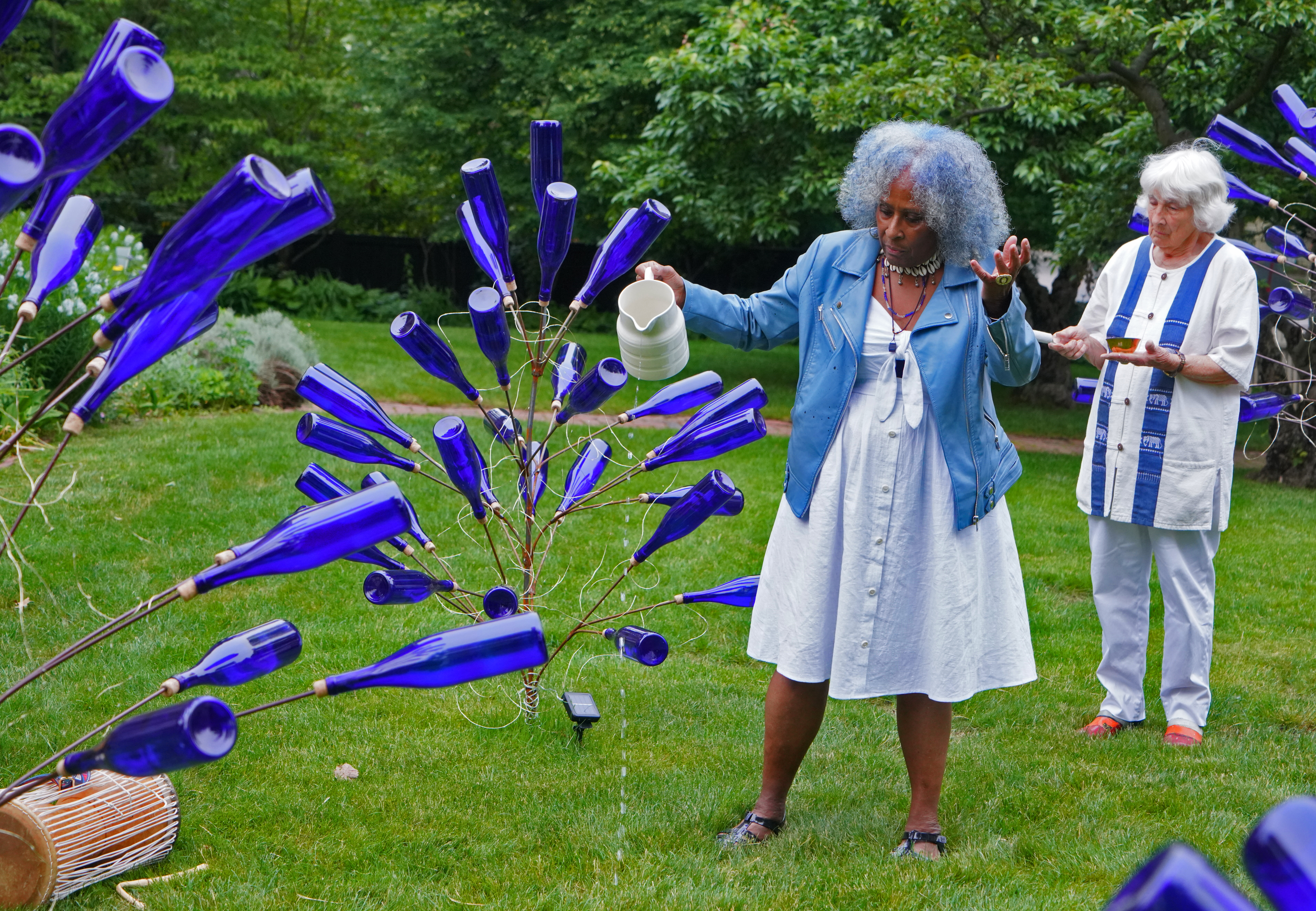
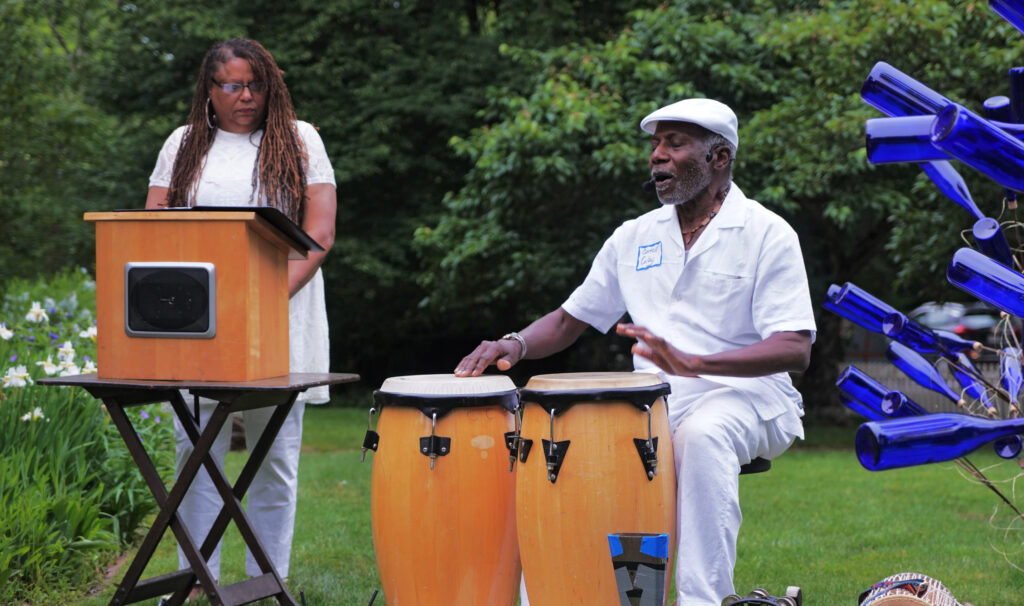
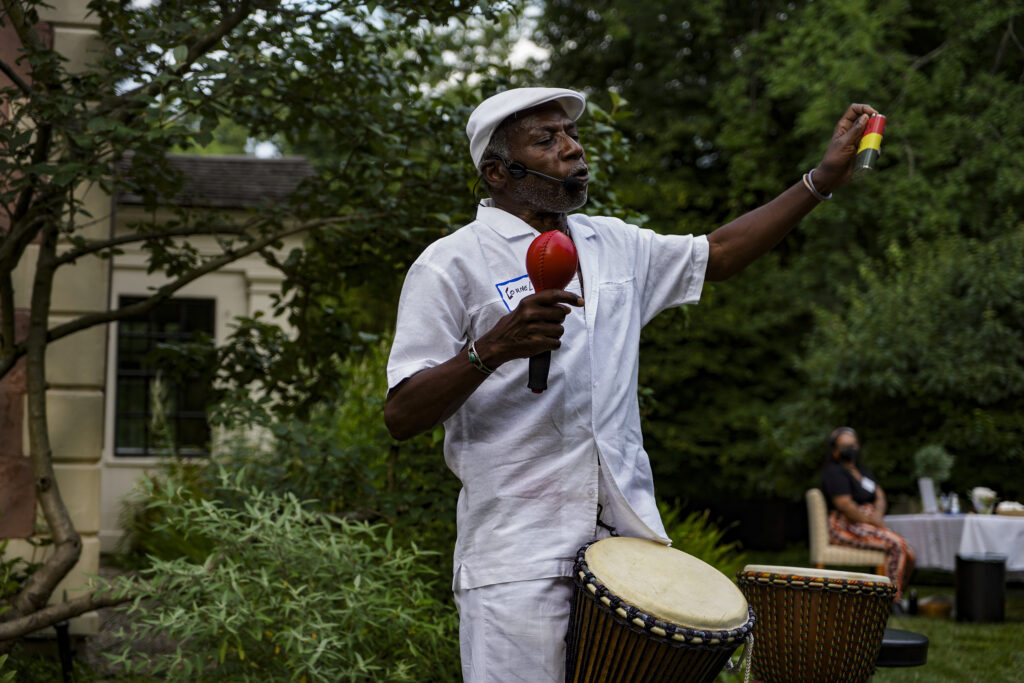
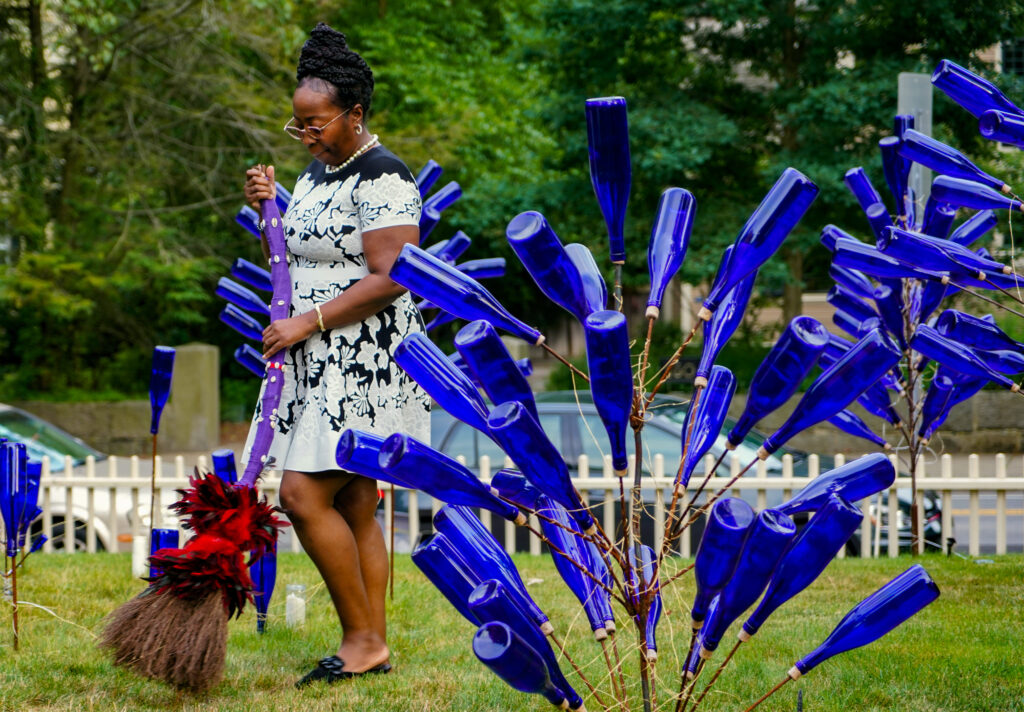
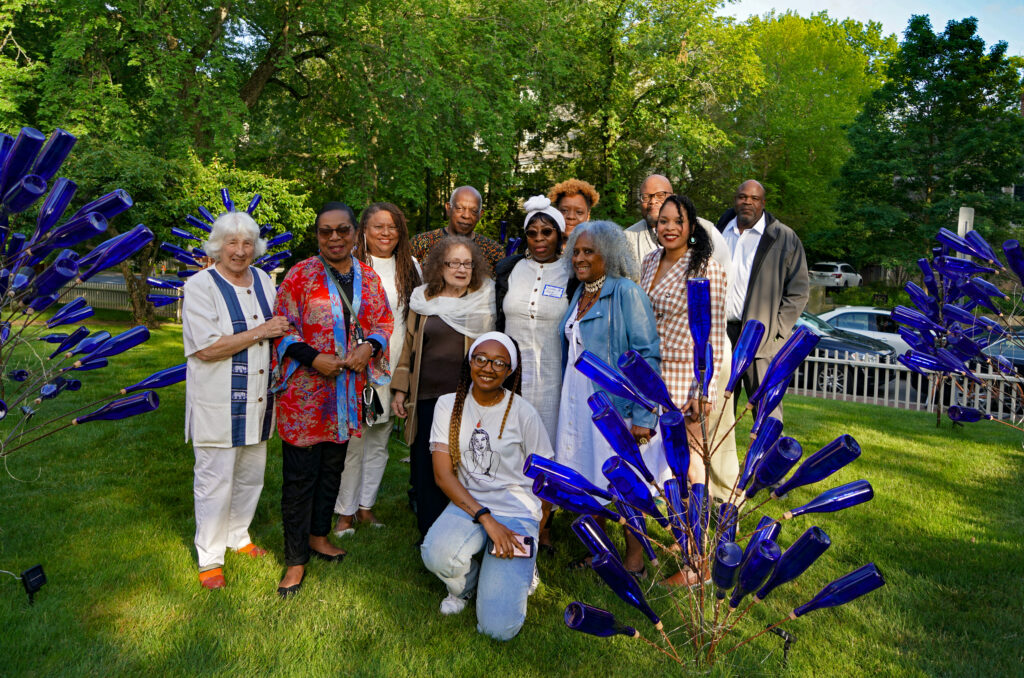
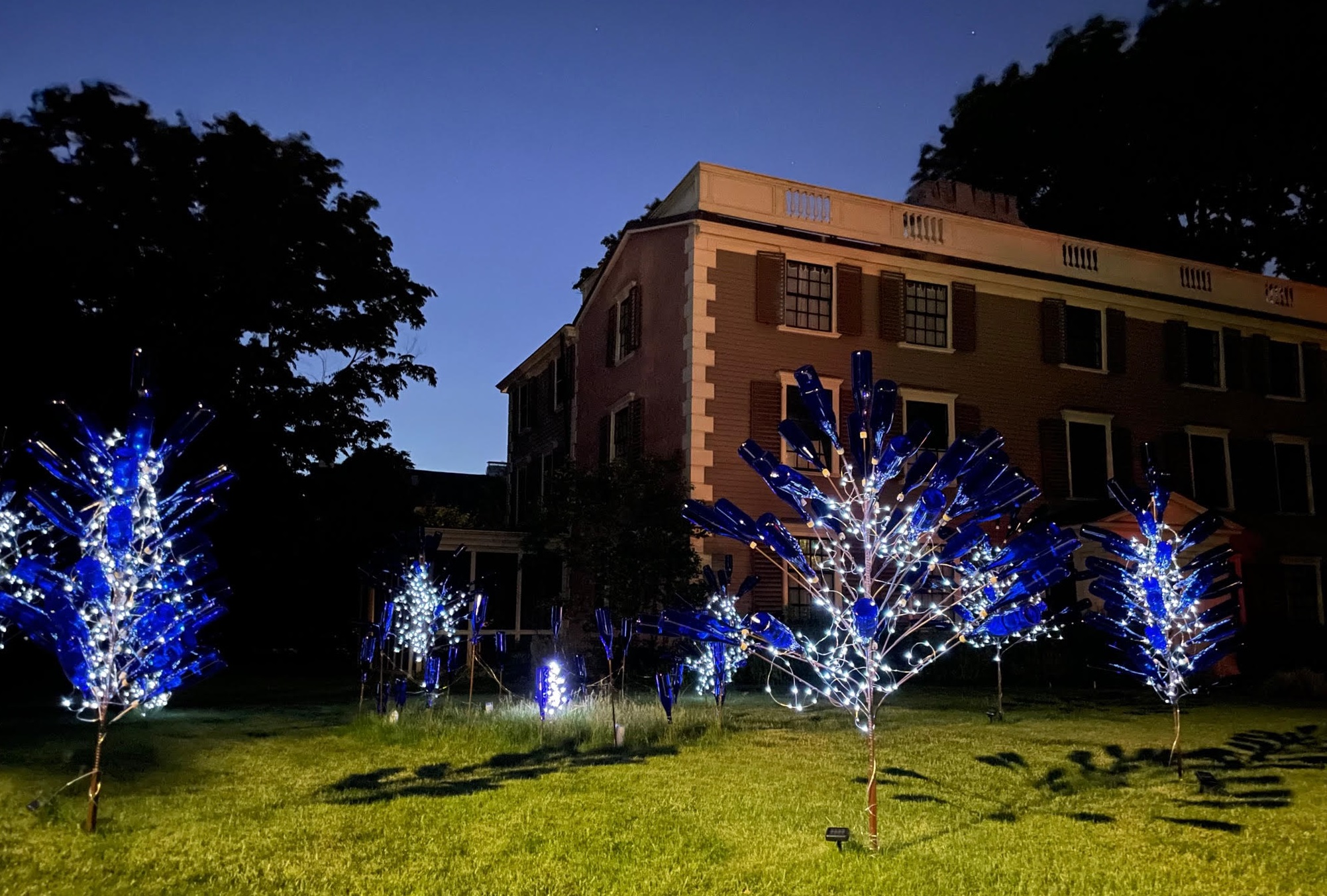
Project Team
Thank you to the members of the Project Team: Paula Paris, Egypt Lloyd, Barbara Martin, Caitlin Hopkins, Laura Roberts, and Beth Folsom.
Project Funders
Special thanks to our funders Cambridge Arts, Mass Cultural Council, and City of Cambridge who made this possible!

